When Antidepressants Aren’t Enough: Exploring Lasting Alternatives
For millions of people struggling with depression and anxiety, antidepressant medications are often the first line of defense. Drugs like Prozac, Zoloft, Lexapro, Cymbalta, and Effexor have become household names, prescribed by primary care providers and psychiatrists alike. These medications can offer relief for some, but the journey is far more complex for many others.
If you have tried antidepressants and found that your symptoms persist, or if the side effects outweigh the benefits, you are not alone. Across the United States, individuals are seeking new approaches that address the root causes of depression, not just its symptoms.
At Scenic City Neurotherapy, we help those who feel stuck on the medication treadmill. Our approach focuses on restoring your brain health and emotional balance through neuroplasticity-based treatments.
This article explores why traditional antidepressants often fall short, what withdrawal and side effects can look like, and what evidence-based alternatives may help when medications are not enough.
The Limits of Traditional Antidepressants
SSRIs (Selective Serotonin Reuptake Inhibitors) and SNRIs (Serotonin-Norepinephrine Reuptake Inhibitors) have been the cornerstone of depression treatment for decades. These medications work by increasing neurotransmitters like serotonin and norepinephrine, which can influence mood and emotional stability.
But while they may reduce symptoms temporarily, they don’t address disrupted neural pathways, trauma-related brain changes, or stress-related dysfunction – the deeper mechanisms driving depression.
Common Frustrations with SSRIs and SNRIs
- Partial or No Relief:
Studies suggest that up to one-third of people taking antidepressants experience little to no improvement. Some initially feel better, only to have their symptoms return months later. - Emotional Numbness or Blunted Affect:
Many patients report feeling detached or “flat.” They no longer experience deep sadness but also lose the ability to feel joy or motivation. - Unpleasant Side Effects:
Sexual dysfunction, fatigue, insomnia, and digestive issues are among the most common side effects that cause individuals to stop taking these medications. - Difficult Withdrawal:
Antidepressant discontinuation syndrome can occur even with gradual tapering. Symptoms include dizziness, “brain zaps,” mood swings, and flu-like sensations. - Tolerance Over Time:
Some medications stop working after months or years, requiring higher doses or switches to new drugs. This cycle can be frustrating and emotionally draining.
Why Medication Alone Is Often Not Enough
Medications regulate chemical messengers but don’t repair the brain’s communication networks. Depression and anxiety often stem from disrupted communication between brain regions, particularly the prefrontal cortex and limbic system.
In other words, medications can act like temporary patches, but lasting recovery requires neuroplastic change, the brain’s ability to form new, healthy pathways that drive communication in the brain and body.
The Power of Neurotherapy
Neurotherapies such as Transcranial Magnetic Stimulation (TMS) and Minimally Stimulated Ketamine Infusion Therapy (MSKIT®) directly stimulate the brain to build new neural connections. These treatments improve communication pathways and restore balance without long-term dependency.
At Scenic City Neurotherapy, we work alongside your current prescriber – and, when appropriate, a therapist – to support a safe transition from daily medications toward a care plan that restores balance through brain health, neuroplasticity, and the development of healthy coping patterns, thoughts, and behaviors.
Medication Snapshots: What Many Patients Experience
Each antidepressant class has its unique characteristics, benefits, and complications. Below are overviews for individual medications, which will be expanded into full supporting articles in the near future.
Lexapro and Zoloft
Both Lexapro (escitalopram) and Zoloft (sertraline) are SSRIs that work primarily by increasing serotonin levels. They are widely prescribed for depression, anxiety, and panic disorders.
While these medications can be effective initially, many patients find that their benefits diminish over time or that side effects become difficult to manage.
Prozac
Prozac (fluoxetine) is one of the earliest SSRIs introduced to the market. It is often used for depression, OCD, and certain anxiety disorders. Some patients tolerate it well, but others experience agitation, insomnia, or diminished emotional range.
Over time, Prozac’s effectiveness may wane, leading to treatment-resistant depression.
Cymbalta
Cymbalta (duloxetine), an SNRI, affects both serotonin and norepinephrine. It is often prescribed for depression, anxiety, and nerve pain. However, it is also known for difficult withdrawal and side effects such as sweating, dizziness, and nausea.
Patients frequently report “brain zaps,” irritability, and sensory disturbances when trying to discontinue the drug.
Effexor
Effexor (venlafaxine) is another SNRI, available in both immediate-release (IR) and extended-release (XR) forms. Although it can be effective for severe depression, it is notorious for withdrawal effects such as “brain zaps,” fatigue, and sensory disturbances.
These symptoms often make patients feel trapped on the medication, afraid to stop due to the discomfort that follows.
Quetiapine and Lamictal
Although primarily classified as antipsychotics and mood stabilizers, Quetiapine (Seroquel) and Lamictal (lamotrigine) are sometimes used as adjuncts to antidepressants. These medications can help manage bipolar symptoms or insomnia but carry risks such as metabolic side effects, sedation, or skin reactions.
A Brain-Health-First Approach to Recovery
Our mission isn’t just to relieve symptoms. It’s to help you experience lasting mental wellness.
MSKIT® (Minimally Stimulated Ketamine Infusion Therapy) enhances global brain connectivity by targeting glutamate pathways, accelerating the formation of new, adaptive neural networks that support relief from depression, anxiety, and trauma.
TMS (Transcranial Magnetic Stimulation) uses magnetic pulses to activate underperforming regions of your brain associated with mood and motivation. This repeated stimulation promotes new neural connections and improves emotional regulation.
Patients experience improved mood, reduced anxiety, and renewed cognitive clarity as the brain becomes more adaptable. Over time, many find that they can reduce or even discontinue traditional medications under medical supervision.
Why Neuroplasticity Matters
Neuroplasticity is the brain’s ability to form new pathways in response to experience, treatment, or learning. Depression and anxiety often stem from rigid or damaged neural patterns that limit flexibility and emotional processing.
Through treatments like TMS and MSKIT®, we help create the capacity necessary for the brain to relearn healthier responses, creating a foundation for long-term stability that medication alone can’t achieve.
The Future of Depression Treatment
The field of Neurotherapy represents a major shift in mental health care: treating the brain’s structure and function rather than relying solely on chemicals to alter mood.
At Scenic City Neurotherapy, we’re making this science-driven, compassionate approach accessible to those who have tried everything else and are ready for lasting change.
You Are Not Out of Options
If your antidepressant no longer works, or if side effects and withdrawal have left you discouraged, remember: you are not treatment-resistant. Your brain is capable of change when it receives the right support.
With modern neuroplasticity-based therapies, you can move beyond symptom management and begin genuine healing.
To learn more about MSKIT® and TMS, visit Scenic City Neurotherapy.
About Scenic City Neurotherapy
You don’t have to keep guessing what might work.
At Scenic City Neurotherapy, we help people get real answers and lasting relief through advanced, evidence-based treatments designed to address the root of mental health and chronic pain challenges, not just the symptoms.
Founded in 2019 by Charles Miller, CRNA, our clinic leads the way in Minimally Stimulated Ketamine Infusion Therapy (MSKIT®) and Transcranial Magnetic Stimulation (TMS) – two cutting-edge therapies proven to safely and effectively restore healthy brain communication.
Our approach is evidence-backed, informed by research, and focused on helping you feel clear, resilient, and capable of moving forward.
If you’re ready for treatment that’s built on proof, not trial and error, contact us today.
📞 423-228-0579
🌐 www.ScenicCityNeuro.com






